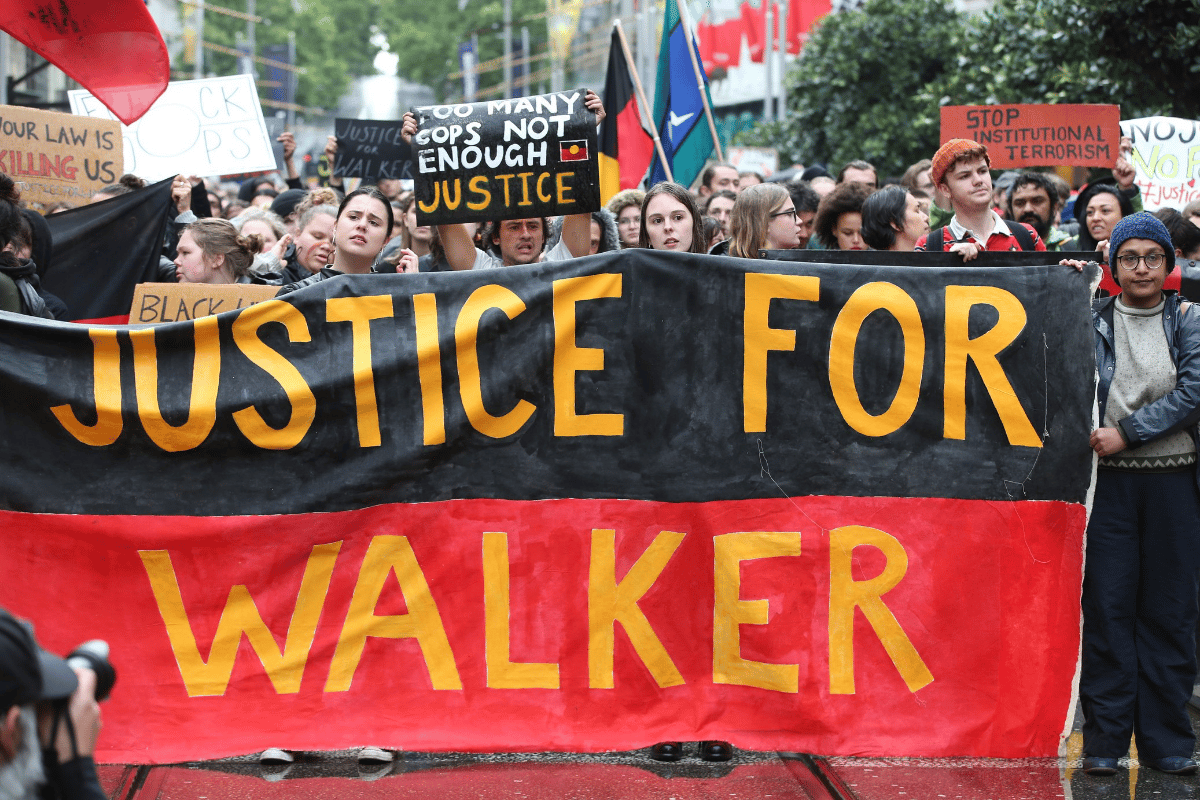
WARNING: Aboriginal and Torres Strait Islander readers are advised that the following article contains names and descriptions of people who have died.
On November 9, 2019, Indigenous teenager Kumanjayi Walker was fatally shot by Constable Zachary Rolfe in Yuendumu, around 300km north-west of Alice Springs.
19-year-old Walker died after being shot three times during the attempted arrest, and it's those subsequent second and third shots that saw Rolfe arrested for alleged murder.
The case was heavily scrutinised due to the disproportionate number of Aboriginal Australians who die while in police custody. There have been close to 500 fatalities recorded since a 1991 royal commission into preventing Indigenous deaths in custody. And as The Guardian reports First Nations people are six times more likely to die in custody than non-Indigenous people.
Watch: Indigenous Lives Matter. Post continues below.
The night in question.
Even though some reports suggest police came to Walker's house to resolve a dispute or because police had been called to deal with an emergency, community members stress police "were there to arrest this teenager for breaching parole".

